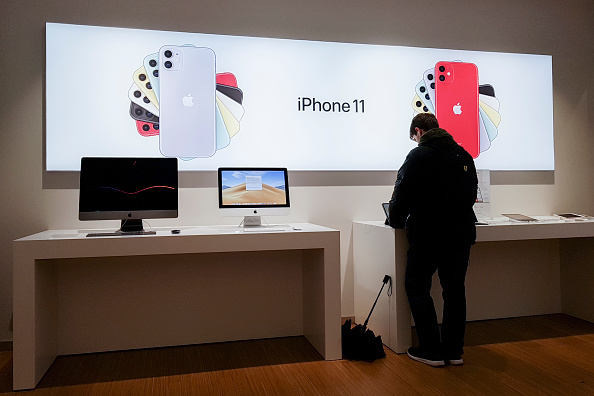NEW 90Hz SCREEN DISPLAY
Something that the Samsung S10 and the iPhone 11 lack is a 90Hz screen refresh, as both rely on a 60Hz display screen. Meanwhile, the Google Pixel phones have a 90Hz screen display, which in laymen’s terms makes screen refreshing faster and scrolling quicker. It should be noted that users can switch to a 60Hz display, which can be useful for preserving battery life. This isn’t the only smartphone in the market to offer this new spec, as the OnePlus 7 Pro also has such an advanced screen display. In spite of this, reviewers have noted that a 90Hz screen display will probably not be the enticing feature that will persuade common consumers to buy the Pixel 4, as tech enthusiasts will probably be the most excited about a smartphone screen display that slightly refreshes quicker. Moreover, it is possible that Apple and Samsung’s next year’s flagship phones will have 90Hz screen displays, thus making the Pixel 4 not as competitively viable anymore.
ONLY A DUAL CAMERA?
While the Samsung S10 and the iPhone 11 both rock a triple rear camera, the Huawei Mate 30 Pro has a quad camera on its backside. Surely Google would have wanted to one-up its competitors by giving the Pixel 4 a more impressive camera, right? Well, Google failed to do so since its latest flagship only has a dual rear camera, one wide lens and one tele-lens but some tech enthusiasts will be disappointed to know that it doesn’t have an ultra-wide lens. Moreover, Google boasted over the phone’s night sight mode which according to the company can capture clear photos at night and even capture stars in the night sky (apparently it can also take pictures of the Milky Way on a clear night). While that might seem impressive, a YouTube review compared the phone’s night sight mode to that of the iPhone 11 Pro Max and found that the iPhone was actually more capable of capturing clearer photos at night (though the IPhone’s astronomical abilities weren’t put to the test). The same review also found that photos taken by the iPhone were clearer and that backgrounds tended to blur more in the Google Pro. However, the Google Pixel does have dual exposure controls which can enable users to adjust the camera’s brightness and shadows; as such users will not be forced to wait until after the photo is taken to modify the brightness or shadows of a photo.

BATTERY LIFE COULD BE BETTER
As users rely heavily on their phones, it is little wonder that battery life is a huge deciding factor when it comes to phone purchases. Many online reviews have noted that the smartphone has a disappointing battery life, since Google opted for a 2,800 mAh battery which is unreliable if you’re a heavy phone user. One reviewer in Droid Life stated that he can get 3-4 hours of usage on other phones before their batteries drop to 30 to 20 percent, but the Pixel 4 fails to even meet that minimal requirement. According to another review on The Verge, users can prolong battery life by dimming the brightness, not using battery eating apps and switching the refresh rate to 60Hz, which only says that heavy phone users should probably stay away from the Pixel 4.
MAJOR SECURITY FLAW
Another odd choice that Google opted for was a lack of a fingerprint lock system, something that has been an industry standard for that last few years. Instead, the only quick unlock system in place is face unlock. While this isn’t necessarily a bad thing, the same YouTube review I cited earlier discovered one major security flaw in the face unlock system, namely the fact that it can be unlocked with your face even if your eyes are shut. In other words, anyone can unlock the phone while you’re asleep; all they need to do is just hold it up to your face. Google did address the issue stating that it would provide a system update that would rectify this bug, but it did not give an exact timeline as to when.
GOOGLE DIDN’T DO ENOUGH
It’s unusual that Google did not exert more effort in its latest flagship phone, tech junkies will not be impressed with the phone’s underwhelming specs (save for its 90Hz screen refresh), and the more gimmicky features, such as astronomical photo capture, will not likely entice casuals to buy the phone. Meanwhile, the really casual users (those who only use smartphones for making calls and sending messages) will probably opt for a cheap model that gets the job done. All in all, if Google wants a larger share of the market it will have to try harder next year.








